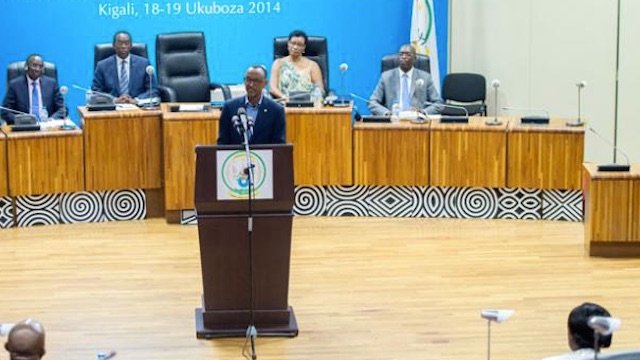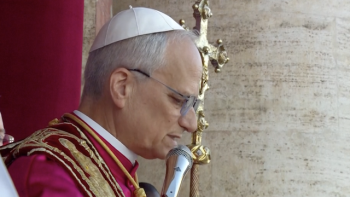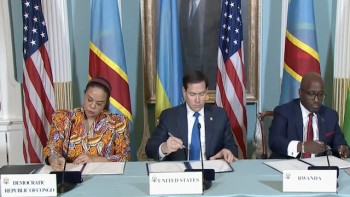On January 25, 2021, Governments around the World, including Africa, Asia, Europe, Noth America, South America, especially the members of the CommonWealth and The European Union, the United States, and others published statements unanimously calling the Rwandan government on systematic human rights abuses, killings and disappearances of political opponents, activists, and journalists. Although the compelling reasons behind the consistent and unanimous condemnations are not clear, AfroAmerica Network has received information on a potential driver of the condemnation: a memorandum written by a well known organization documenting the widely documented systematic human right abuses and violations by the Rwandan governemnt and the perceived inaction by the World community to call the Rwandan Givernment and its leaders on these killings, abuses, and violations.
The memorandum, of which AfroAmerica Network has received a copy, was addressed to the Commonwealth Secretary-General, Rt Hon Patricia Scotland QC. The memo was written in January 2020.
In the memorandum, the organization is appealing to the CommonWealth to help "the people of Rwanda and the Great Lakes Region of Africa to free themselves from wars and insecurity, repression, and despair ".
The statements from the UK, the US, Canada, Ghana, Gabon, Norway, Slovenia, Austria, Australia, Sweden, Switzerland, Spain, Senegal, Phillipines, South Korea, and many more are consistent with that appeal.
The statement of the UK Government, signed by Julian Braithwaite, Ambassador and Permanent Representative, UK Mission to the WTO, UN and Other International Organisations ( based in Geneva), reads (see here 37th Universal Periodic Review: UK statement on Rwanda):
"We (UK Government) remain concerned, however, by continued restrictions to civil and political rights and media freedom. As a member of the Commonwealth, and future Chair-in-Office, we urge Rwanda to model Commonwealth values of democracy, rule of law, and respect for human rights.
We recommend that Rwanda:
-
Conduct transparent, credible and independent investigations into allegations of extrajudicial killings, deaths in custody, enforced disappearances and torture, and bring perpetrators to justice."
The statement by the US Government reads: (see: U.S. Statement at the Universal Periodic Review of Rwanda):
"We (The United States) are concerned about limited civic and political space, specifically unduly burdensome permitting requirements which inhibit the right of peaceful assembly.
We recommend that Rwanda:
* Promote the right to freedom of expression by ending detentions and harassment of members of the media and civil society for their reporting.
* Independently and transparently investigate credible allegations of unlawful or arbitrary arrests and detentions, killings, and enforced disappearances of human rights defenders, political opponents, and journalists, prosecuting alleged perpetrators under the law.
* Enforce the protection of all persons’ rights to life and liberty by strengthening the independence of the justice system and ensuring no one is convicted on the basis of information extracted under torture or duress."
Is the Memo Behind the Widespread Condemnation of Rwandan Goverment over Systematic Human Rights Abuses?
The memo refers to a CommonWealth meeting that was planned in January 2020, then due to the COVID-19 pandemic, rescheduled to June 2020, and then to 2021. The memo starts with:
"it is with anticipation that we look forward to the results of 2020/2021 Commonwealth Strategic Plan. Specifically, [we believe] that the strategies and policies of the Commonwealth will help open a new chapter by stressing the need for a different course of actions and promoting practical and effective solutions in member states, especially those that have influence on the on-going humanitarian events, unrests, wars and political repression in African Great Lakes Region, especially in the Eastern Democratic Republic of Congo (DRC), Rwanda and Burundi. "
Then the memo makes the following key points:
- The root of the problem in the Great Lakes region of Africa, especially that of refugees in the Democratic Republic of the Congo, is the prevailing political situation in Rwanda and the corrupt dictators ruling the countries of the region;
- The 2020/2021 Commonwealth Strategic Plan covers a period when major military operations are targeting refugees in Eastern DRC, and hence should not ignore the "acts of genocide" committed in the Democratic Republic of the Congo (DRC) by the Rwandan Goverment between 1993-2003, as documented in the2010 UN Mapping Report;
- General Paul Kagame has ignored the aspirations of the Rwandan people and imposed himself on the Rwanda people as the de facto lifetime ruler of Rwanda;
- General Paul Kagame is isolated in the region, as Rwandans and most people of the region view him as an arrogant, warmongering, and evil person;
- General Paul Kagame has clearly indicated that Rwanda will remain a tyrannical and violent regime;
- General Paul Kagame’s regime is the most Human Rights abuser in the region, and hence has become a liability for its allies;
- The memo cites accounts of former close aides of General Paul Kagame, denouncing the abuses by the regime and the descent into a total brutal, monoethnic, oligarchich, repressive, and bloody regime.
The memo goes on with proposing solutions, most of which are aligned with the statements and recommendations from the UK, US, and some other countries espcially the members of the CommonWealth and the European Union.
The question remains though: Was the Memo written by the organization the driver of the widspread condemendation of the Rwandan government's appaling human rights record?
In fact, based on the memo, on November 26, 2011, General Paul Kagame publicly said in the Rwandan langage (see bold):
"As we are building Rwanda, those who want to speak freely, we destroy them and we do not apologize for it, at all. The only apology is that we do no destroy them enough. (“Igihe turimo twubaka u Rwanda ukaza kuvuga ibirusenya turagusenya. Nta n’umwe twabisabira imbabazi, at all, ahubwo ntitubikora bihagije.”) "
AfroAmerica Network has contacted the key stakeholders and is still waiting for their response on the memo and the on-going reactions.
@2021 AfroAmerica Network.

















